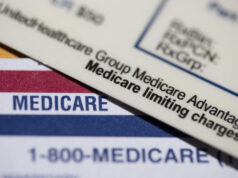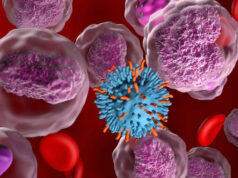I have a problem that I hope you can help me solve. I am a psychotherapist and, yet, I am turning to you for advice. Here’s my problem: we women and girls of today tend to be sophisticated—smart, attractive, stylish, committed to family, religion, health, exercise, and nutrition. What could be better? And yet, as Director of The New York Center for Eating Disorders, I have seen many beautiful women complaining desperately about their bodies and their looks. They strive to be “perfect” and do not seem to realize that everyone has her own unique and special beauty.
Let me be clear: women who have eating disorders—binge eating, bulimia, or anorexia—do, indeed, need help. They come to therapy for emotional eating and together we work to solve their problems and get the control for their eating back inside themselves. We work on separating their emotional stress from their eating; on healing feelings of hurt, anger, grief, on addressing depression or anxiety that may fuel their eating problems. We set up behavioral strategies to help them intervene with their own bingeing, purging, or starving. And, ultimately, they learn to declare peace with emotional eating and communicate better with loved ones.
But there is also a deep level of inner dissatisfaction integral to so many women about not living up to the idealized, perfectionist dictates they feel from society. I will give you some examples of what I mean. (Of course, all identifying details have been changed for confidentiality.)
• A pretty young married woman goes out to dinner with two other couples. She orders fish and vegetables. All through the meal, she sees the other girls only eating salad and veggies. She believes—by comparison—that she has overeaten and berates herself. She compares herself to these “perfect girls.” She has done nothing wrong, her eating is healthy, and yet the critical voice in her head states, “If only I could be in control as much as the other girls, I would feel better about myself.”
• A girl reports that she learned to bake “chocolate chip” cookies out of mashed white beans. “And they only have a dot of oil,” she explains triumphantly. However, the rest of the weekend she binges on real chocolate chip cookies and winds up feeling bad about herself. Her wish to save calories leads her to feeling deprived and she compensates through bingeing.
• A teenager describes how competitive her mother is with her over who is skinnier. “I know this sounds crazy,” she says, “but I saw my mother sneaking cream into my coffee when I wasn’t looking. I think she wants me to gain weight so she is thinner than me.”
• “My mother’s conversation consists of two topics,” says a bulimic girl sadly. “Tuna salad and Prada handbags.”
• A young woman reports, “I went to a wedding and a girlfriend of mine who wasn’t there kept questioning me the following day, ‘Did the bride finally lose weight? How did M. look? Did J. get fat again? Did E. lose her pregnancy weight?’ It made me sad all the emphasis she put on looks rather than on the wedding itself. It also made me wonder what she says to others about me.”
• A beautiful, intelligent, popular girl bemoans that at age 23 she is not yet married. She worries she is “too old,” and she feels inadequate and self doubting. She beats herself up every day for not living up to these ideal standards. She blames her body (which is lovely) and sometimes says “my friends tend to marry early, and I feel bad about myself that I’m still single. Like there is something wrong with me.”
Please note that eating disorders and body image dissatisfaction are rampant throughout our society and in all communities. But I do believe the Jewish community has a unique opportunity to work on healing these hurtful message because of being so tight knit and truly wanting the well-being of all. Here are some ideas:
Mothers’ feelings about their appearance make a strong impact on their daughters’ self-esteem. A mother’s anxiety about her weight and body image is contagious to her daughter. The best gift a mother can give her daughter is to address and resolve her own struggles to become a more positive role model.
• Avoid making negative comments about your own body or anyone else’s. If you are anxious about how you look in your jeans, ask only your husband that famous female question, “Do I look fat in this?” Ask this out of earshot of your children. Your children are taking mental notes.
• Refrain from criticizing your daughter’s looks. The most hurtful thing a mother can do is to criticize her daughter’s weight. This is the ultimate psychological weapon a mother can wield: “You need to lose some weight.” “You’re getting fat.” “Even your older sister doesn’t weigh as much as you.” “Your father said you really should go on a diet.”
• Encourage emotions. The more we can encourage our children to express their emotions—hurt, anger, fear—the less they will need to turn to food to comfort themselves and relieve stress.
• Model a value system that emphasizes inner qualities—kindness, intelligence, humor, open discussion of feelings, creativity, education, and curiosity about the world. Passionate engagement in life leaves little room for obsessing exclusively about tuna salad and Prada handbags.
When a mother is comfortable enough in her own skin, has sufficiently resolved whatever food/body image issues she may have, enjoys her relationship with her spouse and friends, and has fruitful work or other creative endeavors, she will be freer to take pride in her maturing daughter. A mother who has improved her own self-esteem will invariably create a happier daughter and derive much pleasure in bringing up a young woman who genuinely likes herself. And this goes for fathers as well. All parents need to build their self esteem in areas other than just appearance.
May our goal for ourselves and our children be: Sink your teeth into life, not into excess food! Perhaps others from the community could add their own suggestions. Please send your comments to Image about how we can improve the self esteem of girls and women. We are all in this together!
Best regards, Mary Anne Cohen
Mary Anne Cohen is Director of The New York Center for Eating Disorders and author of the recently published book, Lasagna for Lunch: Declaring Peace with Emotional Eating. Visit her at www.EmotionalEating.Org.




